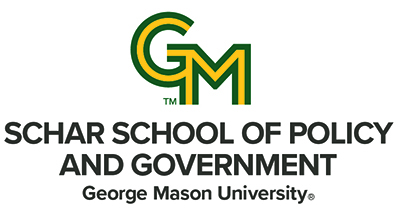In This Story

By all accounts, sporadic and uncommitted voters in swing states are likely to determine the outcome in the 2024 presidential election in November. The Washington Post and the Schar School of Policy and Government at George Mason University have partnered to provide clarity amid speculation.
In a sweeping series of national surveys, several Washington Post-Schar School polls ask registered voters in six key battleground states for their insights as to what will compel them to cast their vote for president—if they choose to vote at all.

The Schar School and the Post have conducted polls since 2016, beginning with the Clinton-Trump race, providing policymakers and Post readers with snapshots of the American public’s attitudes toward a vast number of issues, including abortion, gun violence, public safety, and others. Elections experts and political science professors at the Schar School help the Post create the polls by aiding in choosing topics, designing the surveys, and performing analysis on the data.
The current polling series began with the release of the results of a July 17 story headlined “Deciders.” Among other conclusions gained from questioning thousands of respondents, the survey found that 6 in 10 registered voters in key states are either sporadic voters or not firmly committed to any presidential candidate.
“There’s a sense that there’s something important happening but nobody is particularly motivated to do anything about it,” Mark J. Rozell, founding dean of the Schar School, told the Post. “That is an opportunity for either candidate to find something to mobilize the American public.”
Read “The 2024 ‘Deciders’: Who are they and what makes them tick?”
A June 18 follow up in the Post presented an interactive story asking readers to determine if swing-state voters shared their own priorities. The quiz has been redistributed countless times in media outlets around the country.
Take the quiz: “Do swing-state voters share your priorities? Answer these 8 questions to find out.”
The series continued on June 23 with a survey and story about the “double haters,” those who express resignation, dismay, and anger when presented with a duplicate of the 2020 election—Biden and Trump. Those “double haters,” the poll concluded, are more likely to be younger, Hispanic, or Black, and women living in larger cities, or with no religious affiliation, according to the survey of would-be voters in six key states.
Read “Meet the ‘double haters’ who could decide the election.”
“You get the sense from the polling numbers that people sense the urgency of this election,” Justin Gest, a professor of policy and government at the Schar School, told the Post. “They feel the electricity and the stakes behind it, and they want to care. But the parties have nominated two candidates that deflate the public.”
As November approaches, that sense of urgency intensifies. In a story published on June 26, sporadic and uncommitted voters—the “deciders” of the series—were asked in a Washington Post-Schar School poll which candidate they trusted more to defend democracy. The survey’s conclusions were remarkable.
Read “Trump trusted more than Biden on democracy among key swing-state voters.”
A new Washington Post-Schar School poll is slated for this fall.
